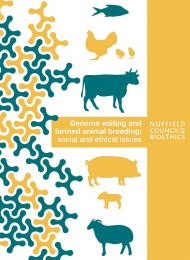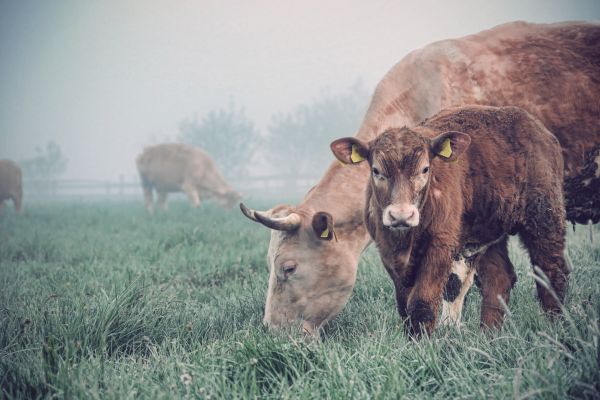Genome editing and farmed animal breeding: social and ethical issues
Report
Published 01/12/2021

Guiding principles
See chapter 7 of the full report.
In our report we set out five principles which are proposed as a framework within which evolving policy and governance may take shape.
1. Food security
Food and farming systems should be organised and managed in ways that deliver safe, nutritious food to meet the needs of all humans and animals who depend on them, now and for future generations.
2. Basic justice
Food and farming systems should be organised and governed in a way that respects the basic interests of the people and animals they affect i.e. giving them opportunity to live their lives in a state of safety, security and wellbeing, with access to the experiences that constitute a good life for them.
3. Proportionality and caution
Policy and governance for farmed animal breeding must look beyond just the predicted costs and benefits of innovations, to the implications of their adoption, diffusion and normalisation for the food and farming system. Policies must be aligned with addressing societal challenges such as food sustainability, animal welfare and environmental problems. The implications of not innovating, or of following alternative courses of action, must also be considered.
4. Engagement and procedural justice
New breeding technologies are likely to be the subject of strong public interest, especially where they could have a significant bearing on food security and/or affect the basic interests of people and animals. Those responsible for policy and governance should take steps to listen to the values and interests expressed by members of the public and act on them.
5. Cooperation and solidarity
Government and public authorities operating within the food and farming system should work with other countries to address international challenges such as food security and nutrition, animal welfare, animal health, animal-to-human disease transmission, biodiversity loss, ecosystem impacts and climate change.

Share